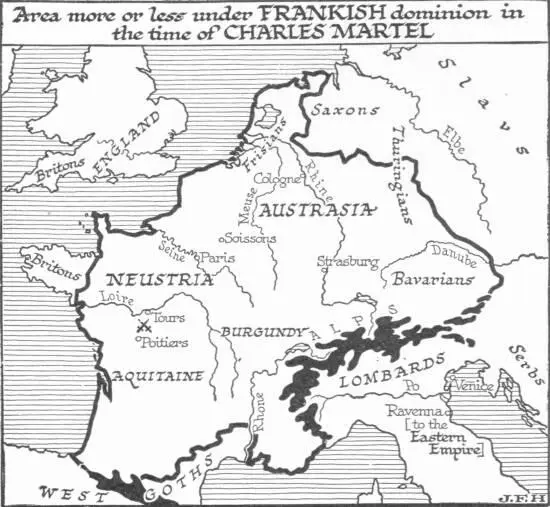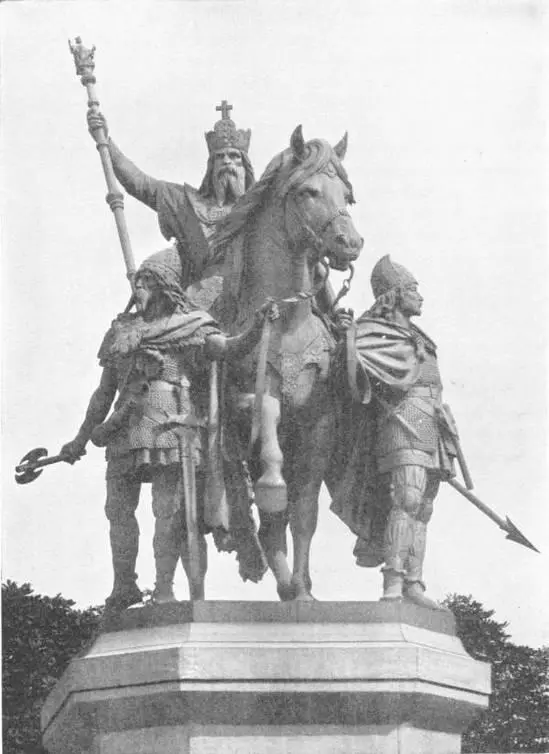Herbert Wells - A Short History of the World
Здесь есть возможность читать онлайн «Herbert Wells - A Short History of the World» весь текст электронной книги совершенно бесплатно (целиком полную версию без сокращений). В некоторых случаях можно слушать аудио, скачать через торрент в формате fb2 и присутствует краткое содержание. Год выпуска: 2011, Жанр: История, на английском языке. Описание произведения, (предисловие) а так же отзывы посетителей доступны на портале библиотеки ЛибКат.
- Название:A Short History of the World
- Автор:
- Жанр:
- Год:2011
- ISBN:нет данных
- Рейтинг книги:4 / 5. Голосов: 1
-
Избранное:Добавить в избранное
- Отзывы:
-
Ваша оценка:
- 80
- 1
- 2
- 3
- 4
- 5
A Short History of the World: краткое содержание, описание и аннотация
Предлагаем к чтению аннотацию, описание, краткое содержание или предисловие (зависит от того, что написал сам автор книги «A Short History of the World»). Если вы не нашли необходимую информацию о книге — напишите в комментариях, мы постараемся отыскать её.
A Short History of the World — читать онлайн бесплатно полную книгу (весь текст) целиком
Ниже представлен текст книги, разбитый по страницам. Система сохранения места последней прочитанной страницы, позволяет с удобством читать онлайн бесплатно книгу «A Short History of the World», без необходимости каждый раз заново искать на чём Вы остановились. Поставьте закладку, и сможете в любой момент перейти на страницу, на которой закончили чтение.
Интервал:
Закладка:
Yet the vitality of the Nordic peoples was not exhausted. Confined now to Central and North-Western Europe and terribly muddled in their social and political ideas, they were nevertheless building up gradually and steadily a new social order and preparing unconsciously for the recovery of a power even more extensive than that they had previously enjoyed.
We have told how at the beginning of the sixth century there remained no central government in Western Europe at all. That world was divided up among numbers of local rulers holding their own as they could. This was too insecure a state of affairs to last; a system of co-operation and association grew up in this disorder, the feudal system, which has left its traces upon European life up to the present time. This feudal system was a sort of crystallization of society about power. Everywhere the lone man felt insecure and was prepared to barter a certain amount of his liberty for help and protection. He sought a stronger man as his lord and protector; he gave him military services and paid him dues, and in return he was confirmed in his possession of what was his. His lord again found safety in vassalage to a still greater lord. Cities also found it convenient to have feudal protectors, and monasteries and church estates bound themselves by similar ties. No doubt in many cases allegiance was claimed before it was offered; the system grew downward as well as upward. So a sort of pyramidal system grew up, varying widely in different localities, permitting at first a considerable play of violence and private warfare but making steadily for order and a new reign of law. The pyramids grew up until some became recognizable as kingdoms. Already by the early sixth century a Frankish kingdom existed under its founder Clovis in what is now France and the Netherlands, and presently Visigothic and Lombard and Gothic kingdoms were in existence.
The Moslim when they crossed the Pyrenees in 720 found this Frankish kingdom under the practical rule of Charles Martel, the Mayor of the Palace of a degenerate descendant of Clovis, and experienced the decisive defeat of Poitiers (732) at his hands. This Charles Martel was practically overlord of Europe north of the Alps from the Pyrenees to Hungary. He ruled over a multitude of subordinate lords speaking French- Latin, and High and Low German languages. His son Pepin extinguished the last descendants of Clovis and took the kingly state and title. His grandson Charlemagne, who began to reign in 768, found himself lord of a realm so large that he could think of reviving the title of Latin Emperor. He conquered North Italy and made himself master of Rome.

Approaching the story of Europe as we do from the wider horizons of a world history we can see much more distinctly than the mere nationalist historian how cramping and disastrous this tradition of the Latin Roman Empire was. A narrow intense struggle for this phantom predominance was to consume European energy for more than a thousand years. Through all that period it is possible to trace certain unquenchable antagonisms; they run through the wits of Europe like the obsessions of a demented mind. One driving force was this ambition of successful rulers, which Charlemagne (Charles the Great) embodied, to become Cæsar. The realm of Charlemagne consisted of a complex of feudal German states at various stages of barbarism. West of the Rhine, most of these German peoples had learnt to speak various Latinized dialects which fused at last to form French. East of the Rhine, the racially similar German peoples did not lose their German speech. On account of this, communication was difficult between these two groups of barbarian conquerors and a split easily brought about. The split was made the more easy by the fact that the Frankish usage made it seem natural to divide the empire of Charlemagne among his sons at his death. So one aspect of the history of Europe from the days of Charlemagne onwards is a history of first this monarch and his family and then that, struggling to a precarious headship of the kings, princes, dukes, bishops and cities of Europe, while a steadily deepening antagonism between the French and German speaking elements develops in the medley. There was a formality of election for each emperor; and the climax of his ambition was to struggle to the possession of that worn-out, misplaced capital Rome and to a coronation there.
The next factor in the European political disorder was the resolve of the Church at Rome to make no temporal prince but the Pope of Rome himself emperor in effect. He was already pontifex maximus; for all practical purposes he held the decaying city; if he had no armies he had at least a vast propaganda organization in his priests throughout the whole Latin world; if he had little power over men’s bodies he held the keys of heaven and hell in their imaginations and could exercise much influence upon their souls. So throughout the middle ages while one prince manœuvred against another first for equality, then for ascendancy, and at last for the supreme prize, the Pope of Rome, sometimes boldly, sometimes craftily, sometimes feebly—for the Popes were a succession of oldish men and the average reign of a Pope was not more than two years—manœuvred for the submission of all the princes to himself as the ultimate overlord of Christendom.
But these antagonisms of prince against prince and of Emperor against Pope do not by any means exhaust the factors of the European confusion. There was still an Emperor in Constantinople speaking Greek and claiming the allegiance of all Europe. When Charlemagne sought to revive the empire, it was merely the Latin end of the empire he revived. It was natural that a sense of rivalry between Latin Empire and Greek Empire should develop very readily. And still more readily did the rivalry of Greek-speaking Christianity and the newer Latin-speaking version develop. The Pope of Rome claimed to be the successor of St. Peter, the chief of the apostles of Christ, and the head of the Christian community everywhere. Neither the emperor nor the patriarch in Constantinople were disposed to acknowledge this claim. A dispute about a fine point in the doctrine of the Holy Trinity consummated a long series of dissensions in a final rupture in 1054. The Latin Church and the Greek Church became and remained thereafter distinct and frankly antagonistic. This antagonism must be added to the others in our estimate of the conflicts that wasted Latin Christendom in the middle ages.

STATUE OF CHARLEMAGNE IN FRONT OF NOTRE DAME, PARIS
The figure is entirely imaginary and romantic. There is no contemporary portrait of Charlemagne
Photo: Rischgitz
Upon this divided world of Christendom rained the blows of three sets of antagonists. About the Baltic and North Seas remained a series of Nordic tribes who were only very slowly and reluctantly Christianized; these were the Northmen. They had taken to the sea and piracy, and were raiding all the Christian coasts down to Spain. They had pushed up the Russian rivers to the desolate central lands and brought their shipping over into the south-flowing rivers. They had come out upon the Caspian and Black Seas as pirates also. They set up principalities in Russia; they were the first people to be called Russians. These Northmen Russians came near to taking Constantinople. England in the early ninth century was a Christianized Low German country under a king, Egbert, a protégé and pupil of Charlemagne. The Northmen wrested half the kingdom from his successor Alfred the Great (886), and finally under Canute (1016) made themselves masters of the whole land. Under Rolph the Ganger (912) another band of Northmen conquered the north of France, which became Normandy.
Читать дальшеИнтервал:
Закладка:
Похожие книги на «A Short History of the World»
Представляем Вашему вниманию похожие книги на «A Short History of the World» списком для выбора. Мы отобрали схожую по названию и смыслу литературу в надежде предоставить читателям больше вариантов отыскать новые, интересные, ещё непрочитанные произведения.
Обсуждение, отзывы о книге «A Short History of the World» и просто собственные мнения читателей. Оставьте ваши комментарии, напишите, что Вы думаете о произведении, его смысле или главных героях. Укажите что конкретно понравилось, а что нет, и почему Вы так считаете.








